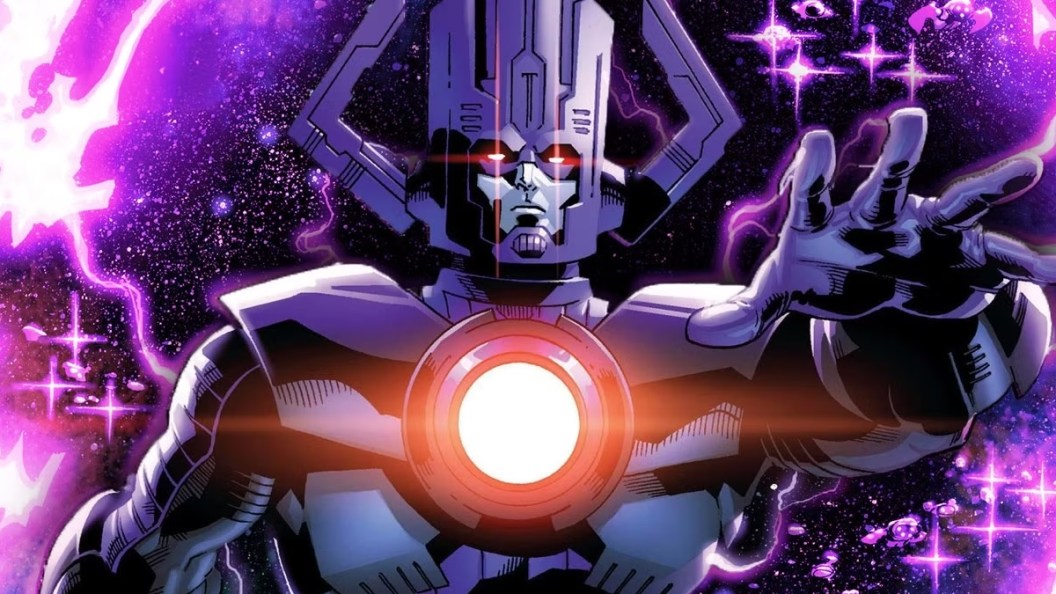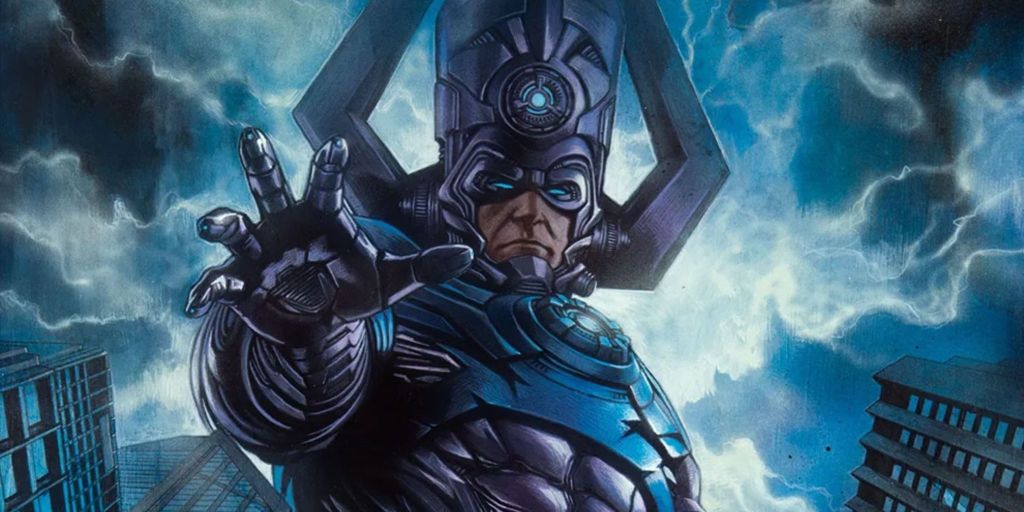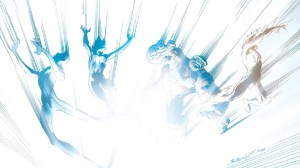
The very name Galactus strikes terror across the universe, for his arrival marks the end of worlds. He is the infamous “Devourer of Worlds,” and is one of the most powerful entities in the entire Marvel Multiverse. He imbues mortals like the Silver Surfer with his power to become his Heralds and seek out new worlds on his behalf. Billions of worlds and countless lifeforms across the universe have fallen victim to his eternal hunger. There have been several times when Galactus has targeted Earth for destruction, but the Fantastic Four, the Avengers, and the X-Men have been able to thwart him. However, unlike most other villains, Galactus doesn’t destroy worlds because he wants to, but because he must. Galactus is a primordial force of nature who is so powerful that the only thing that can sustain him is the energy he obtains by feeding on a planet teeming with life. If he doesn’t destroy worlds, he will starve to death. He is no more evil than the wolf that kills and eats a rabbit – although the rabbit might have some contrary thoughts. Galactus is a necessary phenomenon that exists to maintain the universe’s balance.
Over his many appearances, Galactus is presented as more of an impartial god than an outright villain. Even The Fantastic Four: First Steps actor playing Galactus, Ralph Ineson, states that Galactus isn’t evil. However, the nature of Galactus’ origin and existence reveals that he is, in fact, more than an unstoppable cosmic force. At his core, Galactus is a victim of entities beyond his control, forced into the role of destructive godhood.
Galan: The Man Behind the God

Eons ago, before he was Galactus, the destroyer of worlds, he was a mere mortal named Galan of the planet Taa. Taa was a technological paradise and the most advanced civilization in the universe. However, the entire Multiverse at that time was reaching the end of its natural life cycle, and all life within it was dying along with it. Eventually, Galan’s universe was the only one left. The lethal radiation from the dying Multiverse had killed most of Taa’s population. In the hope of finding something that could save his people, Galan, a scientist and space explorer, desperately searched what little remained of the universe. He found nothing. He and the few survivors of Taa then realized that their deaths were inevitable. With this realization, they agreed to Galan’s proposal that they die on their own terms by flying directly into the center of the universe. As the ship drew ever closer to its end, everyone on the ship died from radiation poisoning, until only Galan remained. He plunged the starship into the termination point of the universe, ready to die with honor. However, the exact opposite occurred.
Right before the Multiverse was completely extinguished, Galan was visited by the embodiment of the dying Multiverse known as the Sentience of the Sixth Cosmos. Because Galan was the last living thing in existence, the godly entity merged with Galan as part of an endless cycle of death and rebirth. As the old Multiverse died, the Big Bang occurred, giving birth to the current Multiverse. Galan was no more, and he transformed into the great destroyer known as Galactus.
The Tragedy of Galactus

What makes Galactus such a tragic figure is that he neither chose nor consented to merging with the Sentience of the Sixth Cosmos. His only desire was to die honorably. But it was Galan’s misfortune to be the last living person in his universe. After suffering the unimaginable pain of watching his world and everyone on it die, he was cursed to inflict the same torment upon countless other planets to satisfy an all-consuming instinct to eat worlds that infected his entire being. Galactus has admitted on multiple occasions that he is haunted by the loss of his homeworld and the countless lives he has taken across the universe.
Although destruction and death are necessary for the universe to thrive, forcing a being who had already suffered the loss of his own planet with the burden of destroying other planets is unspeakably cruel. Whatever guilt or morality Galactus does feel is overcome by the unrelenting hunger and unstoppable instinct to survive forced upon him. Galactus is bound to his hunger in the same way the laws of physics bind the cosmos. In the brief moments he can overcome these imposed primordial instincts, Galactus tries to end his own life by starving himself to death so that he won’t hurt anyone else. However, whether he is convinced by others or his hunger overrides his morality, Galactus always returns to his role as the impartial eater of worlds.
After billions of years of genocide, Galactus has for the most part become detached from the people he has slaughtered. He sees them just as a god might: tiny and insignificant creatures that are meaningless when compared to the infinite Multiverse. As a result, Galactus is now, for the most part, numb to the endless suffering and death he causes, as he views planets teeming with life as nothing more than his next meal. Aside from a few instances of regret, he no longer tries to fight his hunger but instead embraces it.
This was shown when the hero Johnny Blaze aka Ghost Rider, attempted to use the Penance Stare on Galactus. The Penance Stare causes a person to feel the combined pain of every person they have ever hurt. However, Galactus proved to be immune to the Penance Stare’s power because it doesn’t work on people who feel absolutely no remorse for their actions. Galactus’s hunger overrode his mind so thoroughly that not even the Penance Stare could unlock his guilt. Galan was transformed from a man willing to do anything to save his people into a cold and unfeeling cog in the universe’s grand design. After fate had taken away his world and his freedom, perhaps the most significant loss Galactus suffered of all was the loss of his conscience and forgetting what it was like to be a mortal.
The post Galactus is a Victim, not a Villain appeared first on ComicBook.com.


